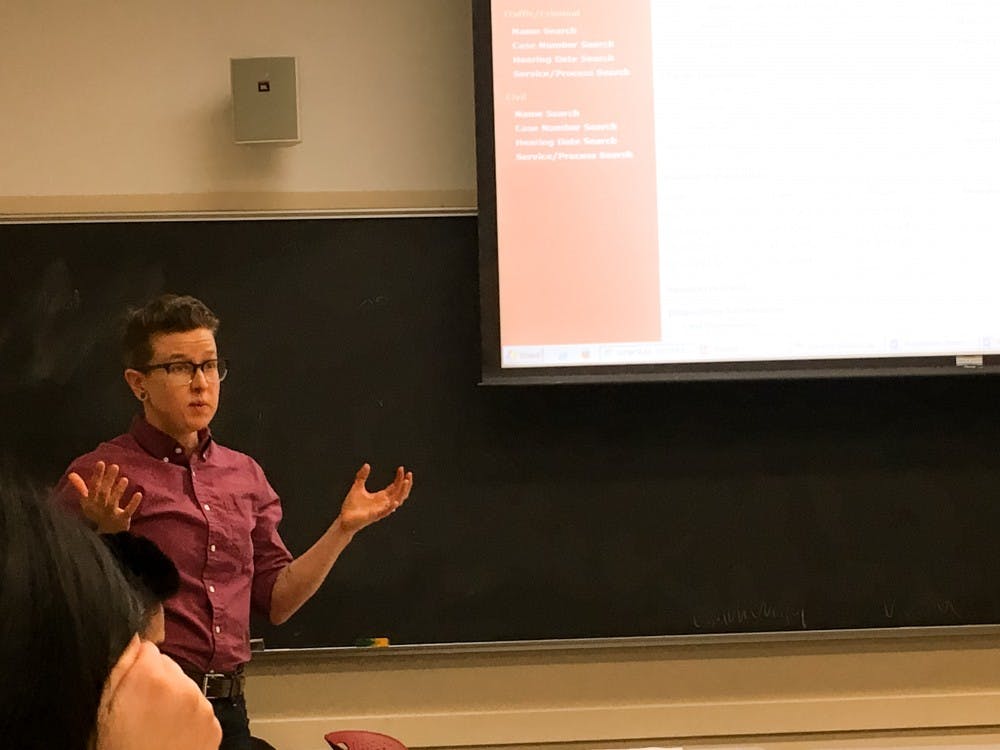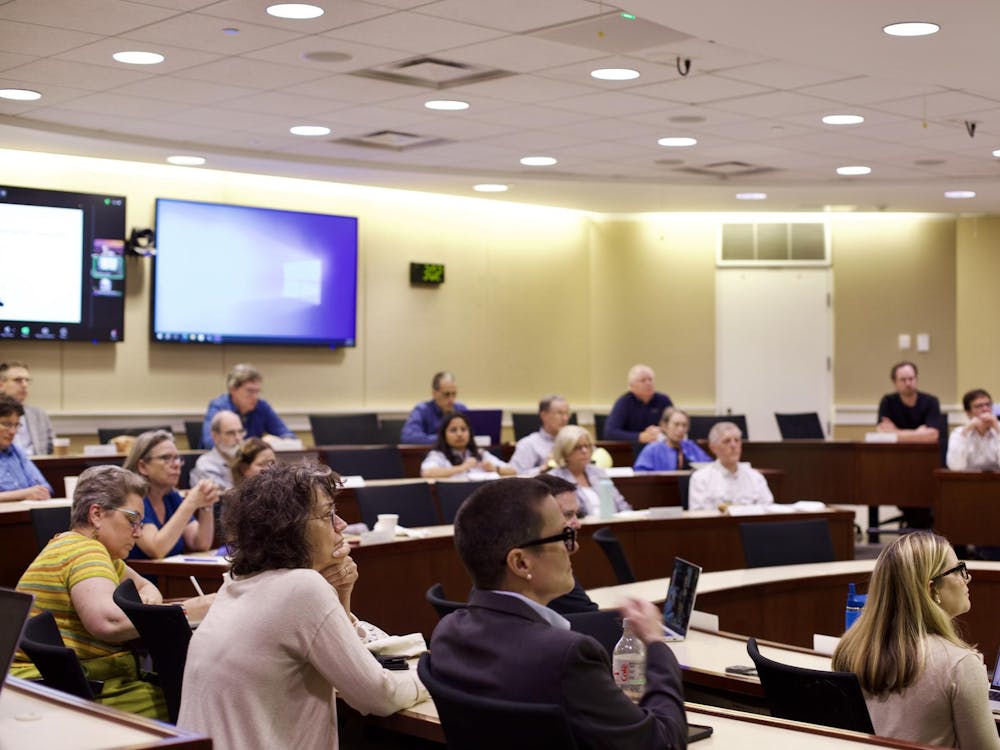Local attorneys Kim Rolla and Maggie Yates of the Legal Aid Justice Center hosted a workshop in Nau Hall Tuesday to teach students how to “court watch.” Court watching is volunteer-based monitoring practice in which participants attend cases in the courtroom to improve accountability in the legal system.
Second-year College student Eileen Ying and third-year College student Tsering Say invited Rolla and Yates from the Legal Aid Justice Center to teach University students how they could participate in the practice.
According to Rolla, approximately 450,000 people on any given night in the United States are held in local jails for without criminal convictions. The majority of them are from low-income, minority communities. These individuals are presumed to be innocent yet are incarcerated due to their inability to afford the cash bail.
During the training session, Rolla and Yates explained the importance of court watching as a community-based tactic to increase accountability in the criminal justice system.
Rolla explained the severity of the issue of pretrial incarceration in the U.S. and how court watching can be utilized as a tactic to combat the problem.
“In most places, you can assume that half of the folks in jails are in pretrial detention,” Rolla said. “They will not be let out before their hearings. The national conversation is happening right now. A large portion of the people who are in pretrial detention are there because they are too poor to pay for the bail.”
According to Rolla, the mass pretrial incarceration is not only common in other parts of the country, but also a crisis that confronts the state of Virginia.
“Virginia actually has the eighth highest jail incarceration rate in the United States,” Rolla said. “One out of 240 people in Virginia are being held in jails in any given day.”
Yates explained the importance of court watching as a way to decrease racial disparities in the legal system.
“Being in the courtroom, being able to meet that person in the courtroom, and connecting with that person is a value that we think is important,” Yates said. “People behave better if they know they are being observed. Just being there and bearing witness decrease racial stratification in the legal system.”
Ying said her motivation in organizing the court watch training session was her enrollment in a class on local politics at the University.
“Starting this school year, I am taking the local politics class and a big part of that class is working on local politics,” Ying said. “I have talked to few people in the Legal Aid Justice Center. I think myself and many other people are interested in doing direct work for the Legal Aid Justice Center.”
Ying added that court watching allows individuals to bypass the barriers that can be imposed by public officials in the legal system.
“A lot of information, in particular in the legal justice system, is really opaque,” Ying said. “You are not going to get very far trying to talk to public officials. There is a joint realization that the best way to do this is through direct observation.”
Reflecting upon the training session, Ying said it allowed her to understand the scope of the bail issue and the benefits of court watching in reducing injustice in both criminal and civil cases.
“Your presence at the courtroom can change the way things go because of the public pressure. The judges sense that there are eyes watching them,” Ying said. “We are also using court watching for a more long-term project, gathering information that can be hopefully used later for more focused advocacy.”
Yates said court watching aids defendants who are unable to afford a lawyer.
“The criminal justice system is supposed to benefit the community as a whole, but these people who are too poor to even hire an attorney is paying for all of us,” Yates said. “Each time in the courtroom, you should be looking for things that are different and things that are the same.”







